Top 30 Greatest Men in the World - Most Influential Persons
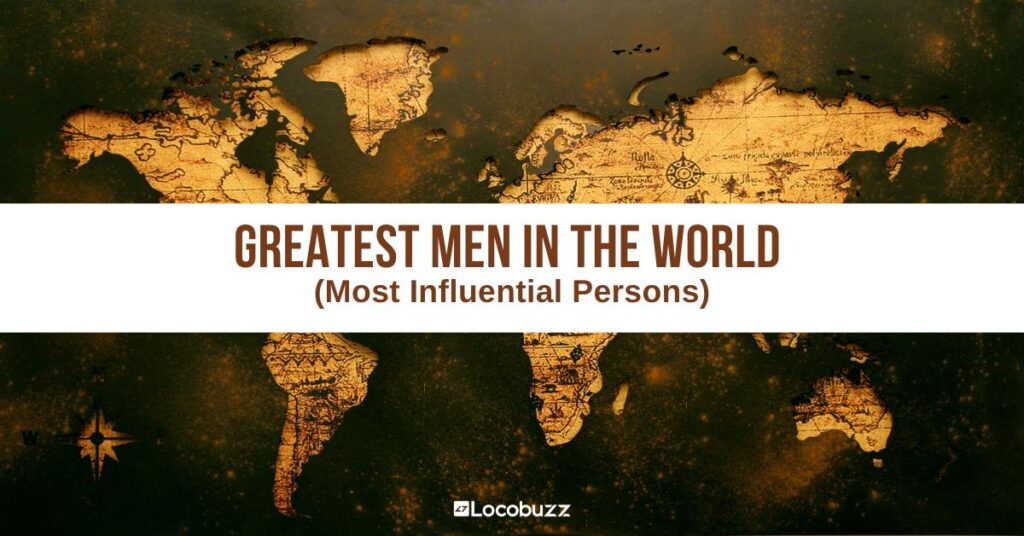
Throughout history, certain individuals have managed to stand out by their deeds and also make a serious difference to humanity. They determined the course of history, and what they left behind has since kept society glued to certain norms. This blog post is about the top 15 best men the world has ever seen. They include visionary leaders, great thinkers, revolutionary inventors, and philanthropists who have lived their lives, enough proof of the limitlessness of human potential. In the narratives of these great men, we come to celebrate the lasting impacts they create in our world. Let us unearth who are these best men in the world based on historical impact and legacy.
Who is the best man in the world?
| Sr.No | Name | DOB | Date of Death | Field of Work |
| 1 | Mahatma Gandhi | October 2, 1869 | 30-Jan-48 | Indian independence movement, nonviolent resistance |
| 2 | Nelson Mandela | 18-Jul-18 | 5-Dec-13 | Anti-apartheid revolutionary, political leader, philanthropist |
| 3 | Albert Einstein | March 14, 1879 | 18-Apr-55 | Theoretical physics |
| 4 | Martin Luther King Jr. | 15-Jan-29 | 4-Apr-68 | Civil rights leader, activist |
| 5 | William Shakespeare | April 1564 | April 23, 1616 | Playwright, poet, actor |
| 6 | Isaac Newton | January 4, 1643 | March 31, 1727 | Mathematics, physics |
| 7 | Charles Darwin | February 12, 1809 | April 19, 1882 | Naturalist, biologist |
| 8 | Leonardo da Vinci | April 15, 1452 | May 2, 1519 | Painter, scientist, inventor |
| 9 | Galileo Galilei | February 15, 1564 | January 8, 1642 | Astronomy, physics, mathematics |
| 10 | Wright Brothers | 1867 (Wilbur), 1871 (Orville) | 1912 (Wilbur), 1948 (Orville) | Aviation pioneers |
| 11 | Thomas Edison | February 11, 1847 | 18-Oct-31 | Inventor, businessman |
| 12 | Nikola Tesla | July 10, 1856 | 7-Jan-43 | Inventor, electrical engineer, mechanical engineer |
| 13 | Abraham Lincoln | February 12, 1809 | April 15, 1865 | U.S. President, political leader |
| 14 | Karl Marx | May 5, 1818 | March 14, 1883 | Philosopher, economist, political theorist |
| 15 | Socrates | 470/469 BC | 399 BC | Philosopher |
| 16 | Adam Smith | June 16, 1723 | July 17, 1790 | Economist, philosopher |
| 17 | Johannes Gutenberg | c. 1400 | February 3, 1468 | Inventor, printer |
| 18 | Alexander the Great | July 356 BC | June 323 BC | King, military leader |
| 19 | Louis Pasteur | December 27, 1822 | September 28, 1895 | Chemist, microbiologist |
| 20 | George Washington | February 22, 1732 | December 14, 1799 | U.S. President, military leader |
| 21 | Christopher Columbus | 1451 | May 20, 1506 | Explorer |
| 22 | Alan Turing | 23-Jun-12 | 7-Jun-54 | Mathematician, computer scientist |
| 23 | Ludwig van Beethoven | December 1770 | March 26, 1827 | Composer |
| 24 | Henry Ford | July 30, 1863 | 7-Apr-47 | Industrialist, founder of Ford Motor Company |
| 25 | Winston Churchill | November 30, 1874 | 24-Jan-65 | Statesman, military leader, writer |
| 26 | Franklin D. Roosevelt | January 30, 1882 | 12-Apr-45 | U.S. President, political leader |
| 27 | Aristotle | 384 BC | 322 BC | Philosopher, polymath |
| 28 | Cai Lun | 50 CE | 121 CE | Inventor of paper |
| 29 | Sigmund Freud | May 6, 1856 | 23-Sep-39 | Neurologist, psychoanalyst |
| 30 | Kofi Annan | 8-Apr-38 | 18-Aug-18 | Diplomat, UN Secretary-General |
1. Mahatma Gandhi
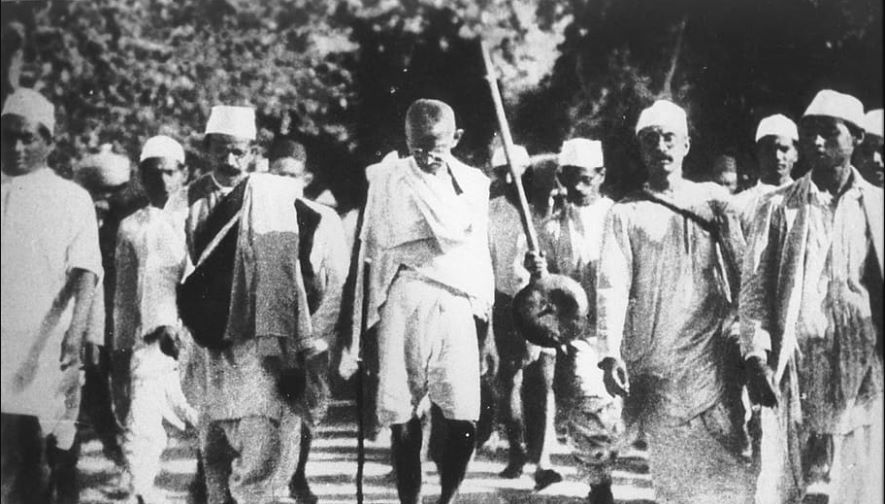
Mahatma Gandhi, born Mohandas Karamchand Gandhi on October 2, 1869, in Porbandar, India, is one of the most renowned figures in the history of the Indian independence movement and a globally recognized symbol of nonviolent resistance and civil disobedience.
Gandhi received his legal education in London and came from a humble family. He was a practicing lawyer in South Africa when, mainly a result of the severe racism faced by Indians there, he got engaged in civil rights and anti-discrimination activities.
Gandhi is most known for his dedication to nonviolence (Ahimsa) and his belief that it is possible to effect social and political change by nonviolent means. He strongly felt that moral and spiritual strength could defeat threats.
India’s fight for independence from British colonial rule benefited immensely from Gandhi’s visionary leadership and support for a peaceful revolt. Independence Day for India was August 15, 1947.
The legacy of Gandhi remains as an example to moral leadership, nonviolent struggle, and the search for equality and justice. He is frequently referred to as “Mahatma,” which in Sanskrit means “great soul,” in honor of his immense impact on the globe and his persistent dedication to nonviolence to bring change. Gandhi’s insistence on ethics in political life is counted as one of India’s most influential persons in history.
2. Nelson Mandela
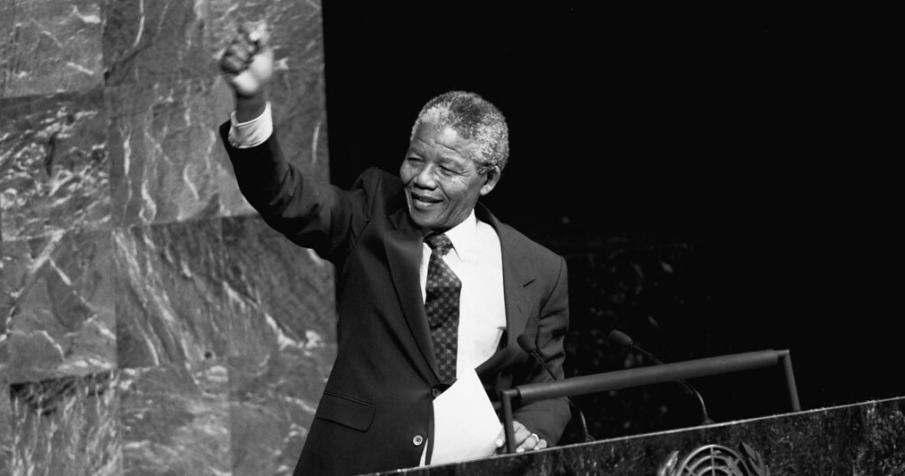
Nelson Mandela was a South African anti-apartheid revolutionary, political leader, and philanthropist who served as President of South Africa from 1994 to 1999. He was born on July 18, 1918, in the small village of Mvezo in the Eastern Cape province of South Africa, and he passed away on December 5, 2013, in Johannesburg, South Africa.
Mandela participated in anti-apartheid campaigns at a young age and joined the African National Congress (ANC) in 1943. He was a well-known opponent of the white minority government’s apartheid practices.
Mandela was arrested and given a life sentence in jail in 1962 for his participation in anti-apartheid campaigns. He spent the majority of his 27 years at an isolated prison off the coast of Cape Town called Robben Island.
Mandela was released from prison in 1990, and he played a crucial role in negotiations to end apartheid. He worked alongside South African President F.W. de Klerk to transition the country to majority rule.
Mandela was elected president of South Africa in 1994 following the nation’s first multiracial elections. During his presidency, apartheid came to an end, and he worked to advance national harmony and unity.
Mandela’s legacy as a champion of justice, equality, and human rights continues to inspire people globally.
3. Albert Einstein
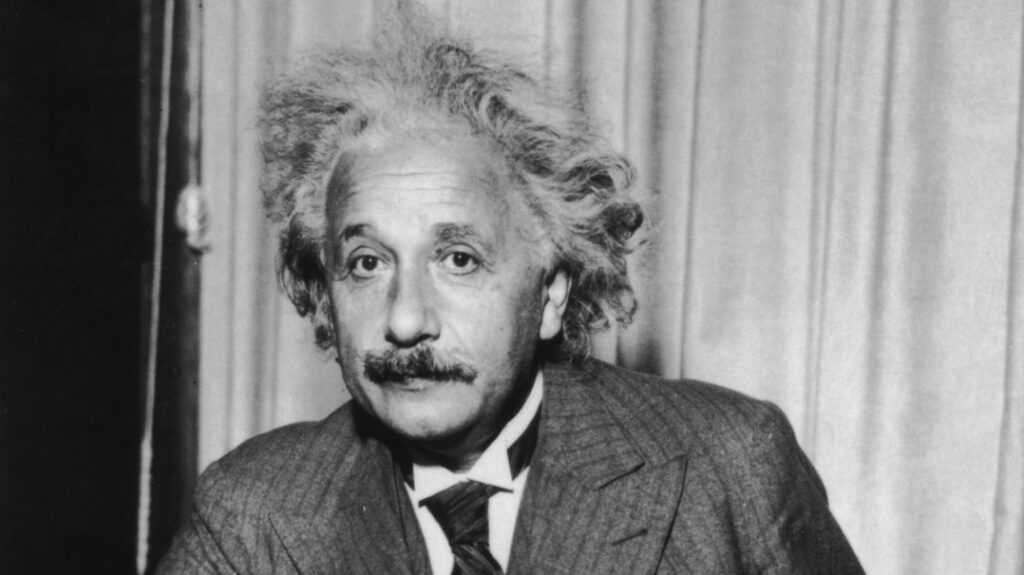
Albert Einstein was a German-born theoretical physicist who is widely regarded as one of the most influential scientists of the 20th century. He was born on March 14, 1879 and he is known for his theory of relativity, which revolutionized our understanding of space, time, and gravity.
The famous equation E=mc2 showing the equality of mass and energy was first established by Einstein in 1905 when he published his theory of special relativity. This idea fundamentally altered how we think about time, space, and how matter and energy interact.
In 1915, Einstein developed the theory of general relativity, which provided a new understanding of gravity. He proposed that massive objects warp the fabric of spacetime, causing other objects to move in curved paths. This theory was confirmed through observations of the bending of light by gravity and became a cornerstone of modern physics.
The photoelectric effect, which showed the quantum basis of light, earned Einstein the Nobel Prize in Physics in 1921. The theory of quantum mechanics was established due to his work.
Albert Einstein’s contributions to science and his legacy extend far beyond the realm of physics. His ideas continue to inspire scientists, researchers, and the general public, and his name is synonymous with intellectual curiosity and groundbreaking discoveries. Due to his profound contributions to science and his impactful influence on philosophy, ethics, and politics he can be coined as world’s best man till today.
4. Martin Luther King Jr
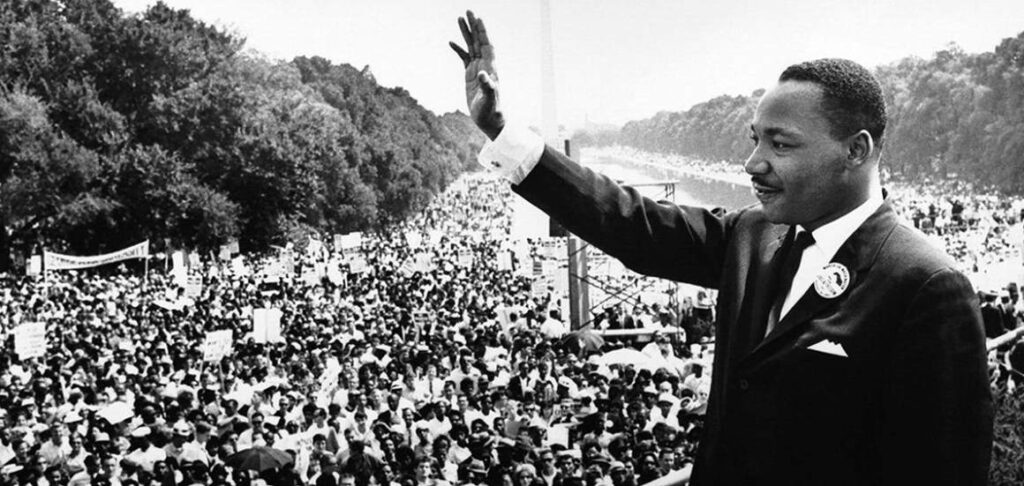
Martin Luther King Jr. was a prominent American civil rights leader and activist who played a pivotal role in the American civil rights movement during the mid-20th century. He was born on January 15, 1929, and he is best known for his advocacy of nonviolent civil disobedience in the pursuit of civil rights and social justice.
In the 1950s and 1960s, Martin Luther King Jr. was a key figure in the civil rights movement. In order to eradicate discrimination based on race in the United States, he organized and led peaceful demonstrations and civil rights campaigns.
King became known across the country for his leadership during the Montgomery Bus Boycott in 1955–1956. This successful boycott, which condemned segregated seating on public transportation in Montgomery, Alabama, was a major early win for the civil rights movement.
King delivered his famous “I Have a Dream” address at the March on Washington for Jobs and Freedom in 1963. This speech, which pushed for racial equality and the elimination of discrimination, is still remembered as one of the most well-known and important parts of the civil rights movement.
Martin Luther King Jr.’s tireless dedication to the principles of equality, justice, and nonviolence made him a symbol of the civil rights movement and a revered figure in American history. His work and legacy continue to inspire activists and advocates for social justice to this day.
5. William Shakespeare
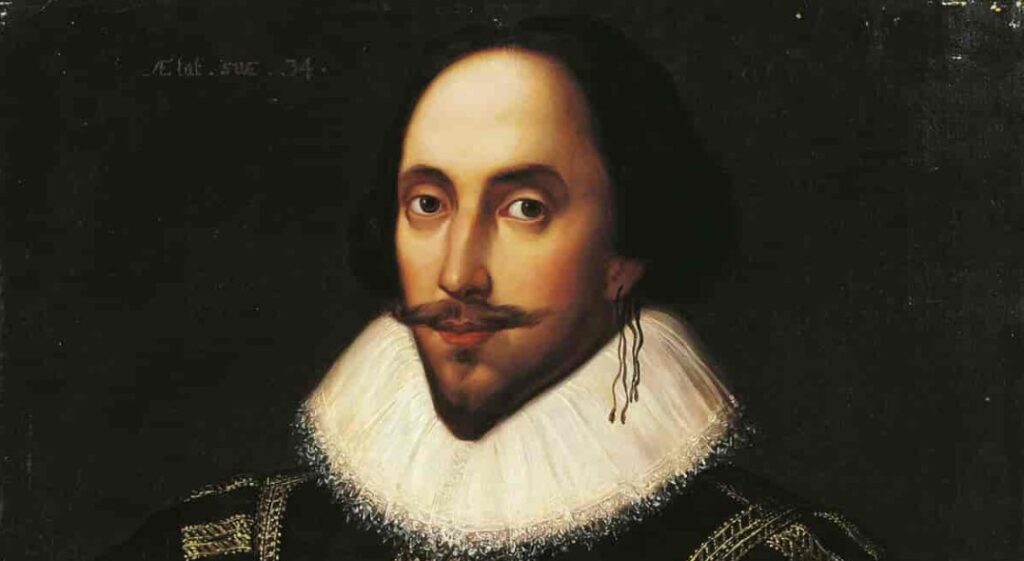
William Shakespeare, often referred to simply as “Shakespeare,” was an English playwright, poet, and actor who is widely regarded as one of the greatest writers in the English language and one of the most influential figures in world literature. He lived during the late 16th and early 17th centuries and is known for his remarkable contributions to the fields of drama and literature.
Shakespeare’s playwriting career had its start in London in the late 16th century. He started working with the Lord Chamberlain’s Men acting troupe, subsequently known as the King’s Men, and produced a number of plays at the Globe Theatre and other places.
Shakespeare wrote an enormous number of plays that cover a wide range of genres, such as tragedies (such as “Hamlet,” “Macbeth”), comedies (which are referred as “A Midsummer Night’s Dream,” “Twelfth Night”), histories (such as “Henry IV,” “Richard III”), and romances (such as “The Tempest,” “Cymbeline”). Complexity, wit, and an investigation of human nature are all characteristics of his writing.
Shakespeare’s plays are performed more frequently than those of any other playwright because they have been translated into every major living language. His plays and poetry are celebrated and studied across the world, showing his influence on a global scale.
Shakespeare’s impact on literature, language, and culture is immeasurable. His ability to capture the complexities of the human experience and his mastery of storytelling have left an indelible mark on the world of literature and continue to resonate with audiences of all ages.
6. Isaac Newton
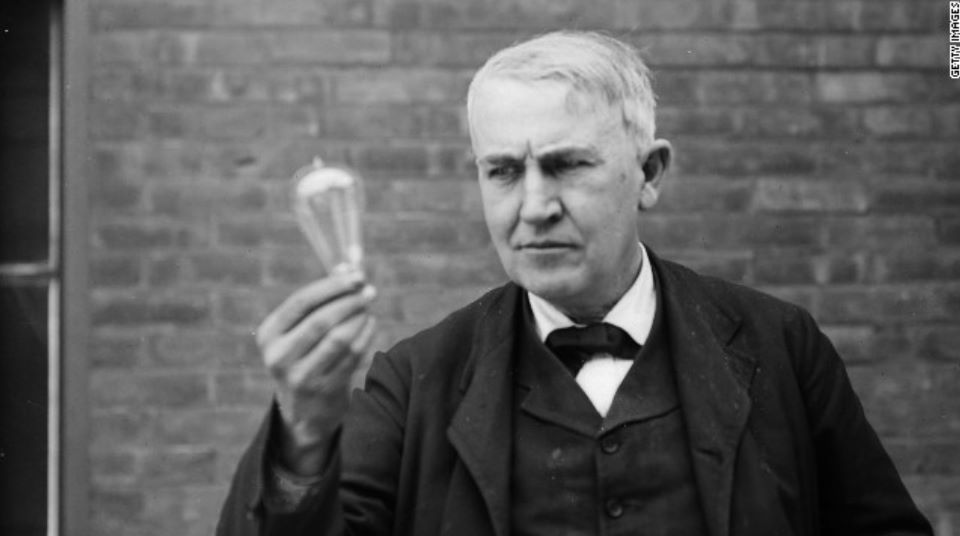
Isaac Newton was born on January 4, 1643, in Woolsthorpe, Lincolnshire, England. He was born prematurely and was not expected to survive, but he went on to become one of the most brilliant minds in history. He attended the University of Cambridge, where he studied at Trinity College. His academic pursuits focused on mathematics, optics, and physics.
The law of universal gravitation, which was discovered by Newton, states that every mass in the universe attracts to every other mass with a force that is inversely proportional to the square of the distance between them and proportional to the product of their masses. One of the most important contributions to physics was the discovery of this law, which explained the motions of celestial bodies.
Isaac Newton’s contributions to science and mathematics had a profound and enduring impact on our understanding of the natural world. His ideas and principles are still taught and applied in various scientific and engineering disciplines today, and he is widely regarded as one of the greatest scientists in history.
Identifying influencers, get in-depth analytics to measure brands online impact.
7. Charles Darwin
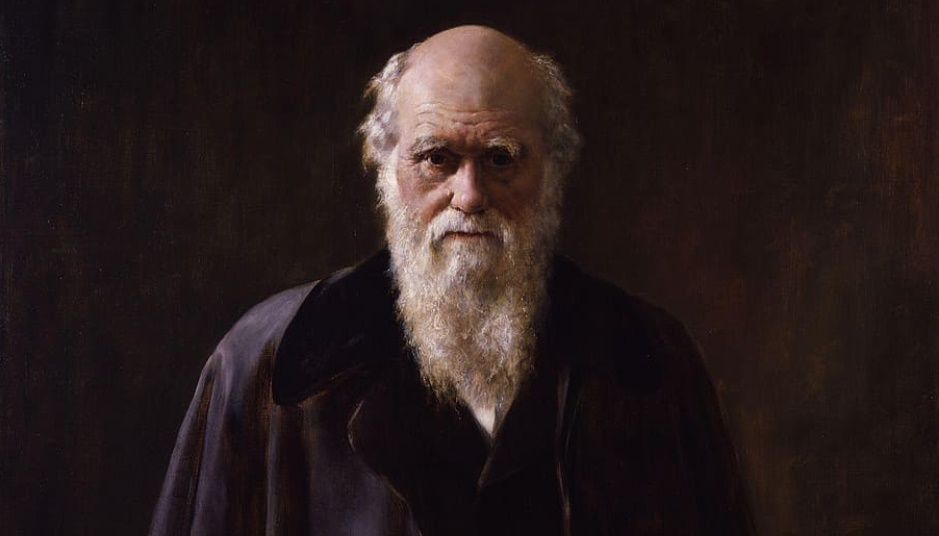
Charles Darwin was a British naturalist and biologist who is best known for his groundbreaking contributions to the theory of evolution by natural selection. His work revolutionized our understanding of the origin and diversity of species and had a profound impact on the fields of biology, paleontology, and the study of life on Earth.
Charles Robert Darwin was born on February 12, 1809, in Shrewsbury, England. He came from a wealthy and well-connected family. He initially studied medicine at the University of Edinburgh and later theology at the University of Cambridge.
Darwin traveled the HMS Beagle throughout the world for five years as a naturalist beginning in 1831. He traveled to numerous continents and islands during this journey, gathering samples and recording in-depth observations of the geology, animals, and plants he observed.
In addition to “The Descent of Man” (1871), which studied the evolutionary origins of people, Darwin also wrote “The Expression of the Emotions in Man and Animals” (1872), which looked at the universality of emotional displays. Darwin continued his scientific work and produced more significant publications throughout his lifetime.
Charles Darwin’s theory of evolution has had a profound and enduring impact on our understanding of the natural world and the diversity of life on Earth. It continues to be a central concept in the biological sciences and remains a subject of ongoing research and exploration.
8. Leonardo da Vinci
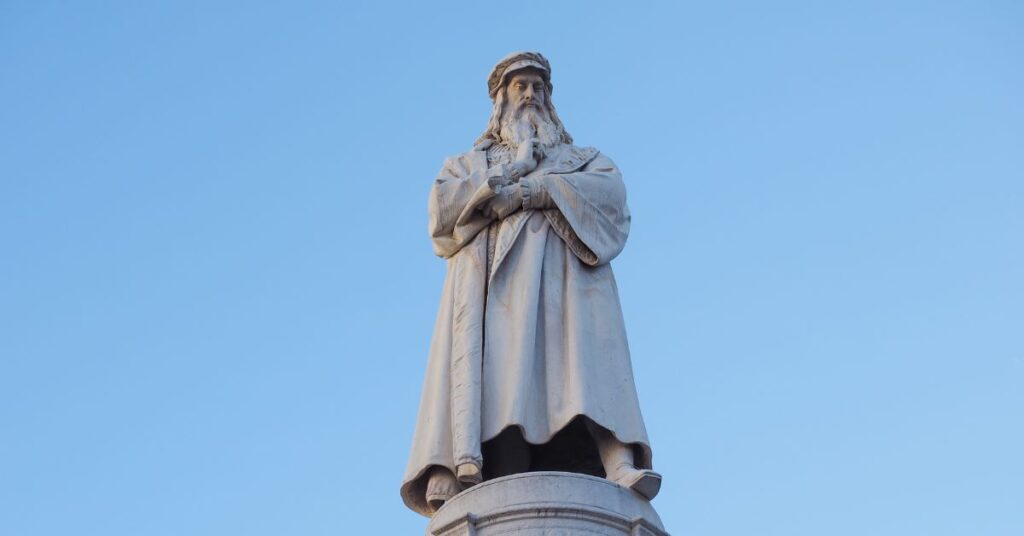
Leonardo da Vinci, often referred to simply as Leonardo, was one of the most brilliant and versatile individuals of the Italian Renaissance. He lived during the late 15th and early 16th centuries and is renowned for his achievements as a painter, scientist, inventor, engineer, anatomist, and polymath.
Leonardo da Vinci was born on April 15, 1452, in Vinci, a small town in Italy. He was born out of wedlock to a notary, Piero da Vinci, and a peasant woman, Caterina. His full name was Leonardo di ser Piero da Vinci.
Leonardo is most recognised for his artistic abilities. He created some of the most recognisable and well-known pieces of art in history, including “The Last Supper” and “Mona Lisa.” His paintings are renowned for their outstanding realism, avant-garde methods, and precise sfumato (the art of combining colors and tones) application.
Leonardo da Vinci’s ability to bridge the worlds of art and science, combined with his insatiable curiosity and innovative thinking, make him an enduring symbol of human creativity and intellectual exploration. His work and ideas continue to inspire people in various fields of study and creativity.
9. Galileo Galilei

Galileo Galilei was an Italian scientist and astronomer who made significant contributions to the fields of astronomy, physics, and mathematics during the late 16th and early 17th centuries. He is best known for his pioneering observations and experiments that helped to establish the modern scientific method.
On February 15, 1564, in Pisa, Italy, Galileo was born. He was expected to pursue a career in music because his family was a group of musicians, but he soon showed a significant interest in maths and science.
While he simply made improvements to pre-existing designs, Galileo is frequently given the credit for creating the telescope. He performed numerous ground-breaking astronomical observations with the telescope.
Galileo made significant improvements in the study of motion and mechanics, among other areas of physics. He developed the inertia concept and the laws of motion for falling bodies.
A wide range of topics, including philosophy and the core concepts of research, were covered in the numerous essays, treatises, and letters that Galileo penned.
Galileo Galilei’s fearless pursuit of scientific truth, despite facing significant opposition, is celebrated as a symbol of the progress of science and the importance of empirical observation and evidence.
10. Wright Brothers
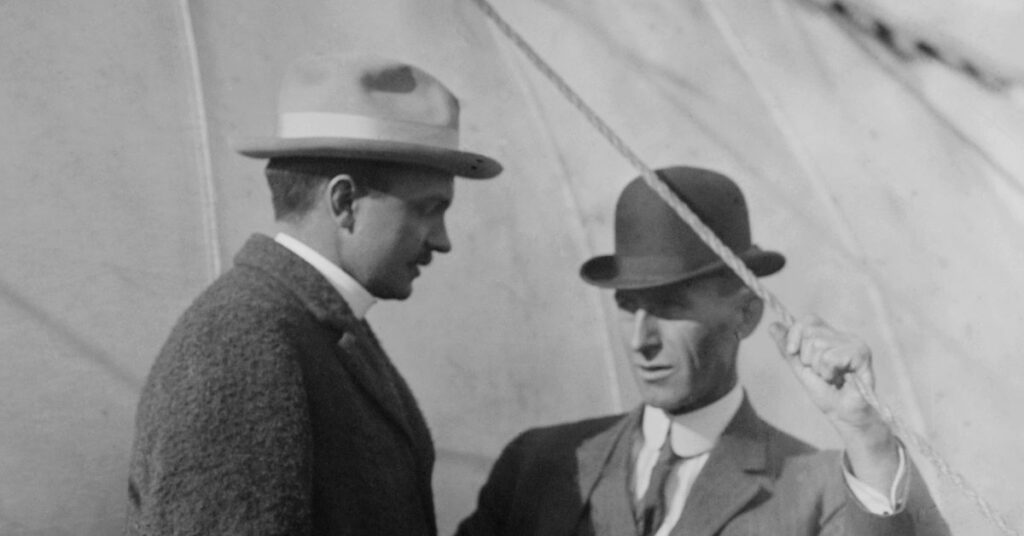
The Wright Brothers, Wilbur Wright (1867–1912) and Orville Wright (1871–1948), were American aviation pioneers who are credited with inventing and building the world’s first successful powered, controlled, and sustained heavier-than-air aircraft. Their historic achievements in aviation took place during the early 20th century and laid the foundation for modern aviation.
The Wright Brothers conducted a great deal of study and testing in the subject of aviation. They were especially interested in learning about the lift, movement, and control concepts required for powered flight.
In the early 1900s, the Wright Brothers experimented with gliders in Kitty Hawk, North Carolina. They were able to obtain important information about the aerodynamics and control of gliding flight through these trials.
In 1908, the Wright Brothers made their first public flights in France, where they showcased their aircraft to a European audience. This helped establish their reputation as aviation pioneers.
The Wright Brothers’ contributions to aviation are celebrated worldwide. They are often referred to as the “fathers of aviation” and their pioneering work paved the way for the development of modern airplanes and the growth of the aviation industry.
11. Thomas Edison
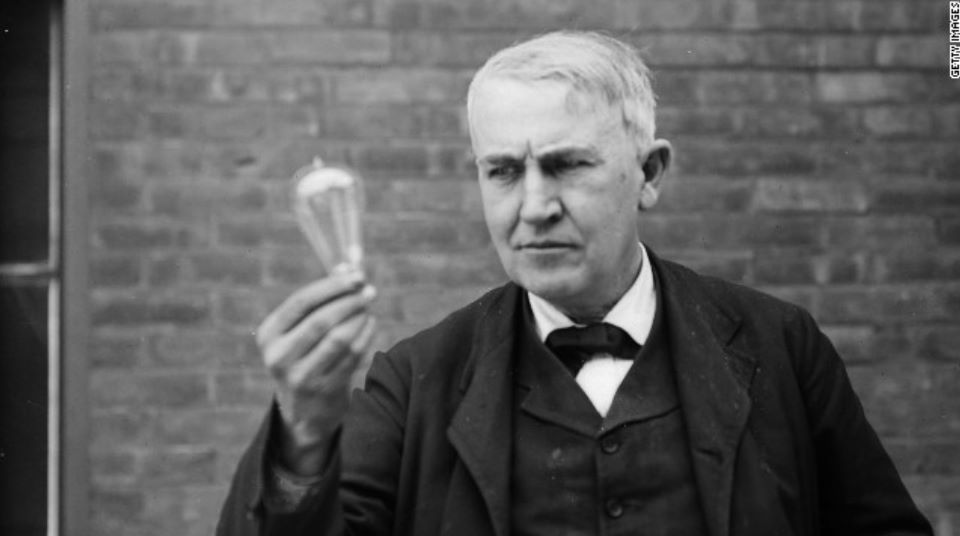
Thomas Alva Edison was born on February 11, 1847, in Milan, Ohio, USA. He grew up in Port Huron, Michigan, and had minimal formal education. His mother, Nancy Edison, played a significant role in his early education.
Thomas Edison was an American inventor, businessman, and one of history’s most successful inventors. His discovery of the light bulb is among his most well-known contributions to the advancement of electric illumination. Electricity, telecommunications, and the movie industry are just a few of the sectors that were significantly impacted by Edison’s work.
Edison had experimentation and creativity. He started a small business selling newspapers and candies on trains as a young boy, doing experiments in his basement laboratory.
A system for the production and distribution of electrical power was also created by Edison. Using his direct current (DC) electrical technology, early electric lights and power distribution in cities were made possible.
Thomas Edison held over 1,000 patents in his lifetime, covering a wide range of inventions and innovations. His work in electricity, telecommunications, and sound recording had a lasting impact on technology and industry.
Thomas Edison’s inventive spirit and dedication to innovation have left an enduring mark on the world, with many of his inventions and ideas continuing to shape modern society. He is often celebrated as a symbol of American ingenuity and entrepreneurship.
12. Nikola Tesla
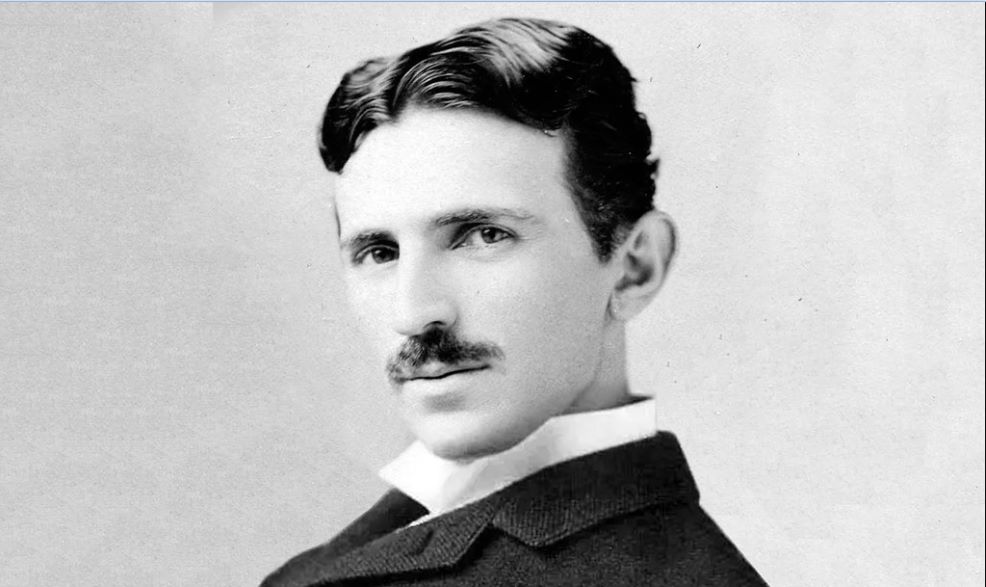
Nikola Tesla was born on July 10, 1856, in Smiljan, Austrian Empire (now Croatia). He came from a Serbian family and studied engineering and physics in Europe.
Nikola Tesla was a Serbian-American inventor, electrical engineer, mechanical engineer, and futurist known for his pioneering work in electricity and magnetism. He made numerous groundbreaking contributions to science and technology, and his ideas have had a profound impact on the development of the modern world.
Tesla’s support of alternating current (AC) electricity placed him against Thomas Edison, who supported direct current (DC) electricity, in a power struggle. The “War of Currents” resulted in AC becoming the accepted method for transferring electrical power.
The Tesla coil, a resonant transformer circuit used in radio and wireless transmission, was created by Tesla. Tesla sparks, high-voltage, low-current electrical discharges, are another of its well-known products.
Tesla has received numerous posthumous honors, including the naming of the SI unit of magnetic flux density, the tesla (T), in his honor. He is also remembered through various museums, statues, and awards.
Nikola Tesla’s work has had a lasting impact on electrical engineering, physics, and technology. His vision for wireless communication and transmission of power laid the foundation for many of the technologies we use today, including radio, television, and the modern power grid. He remains an inspirational figure for inventors, scientists, and futurists around the world.
13. Abraham Lincoln
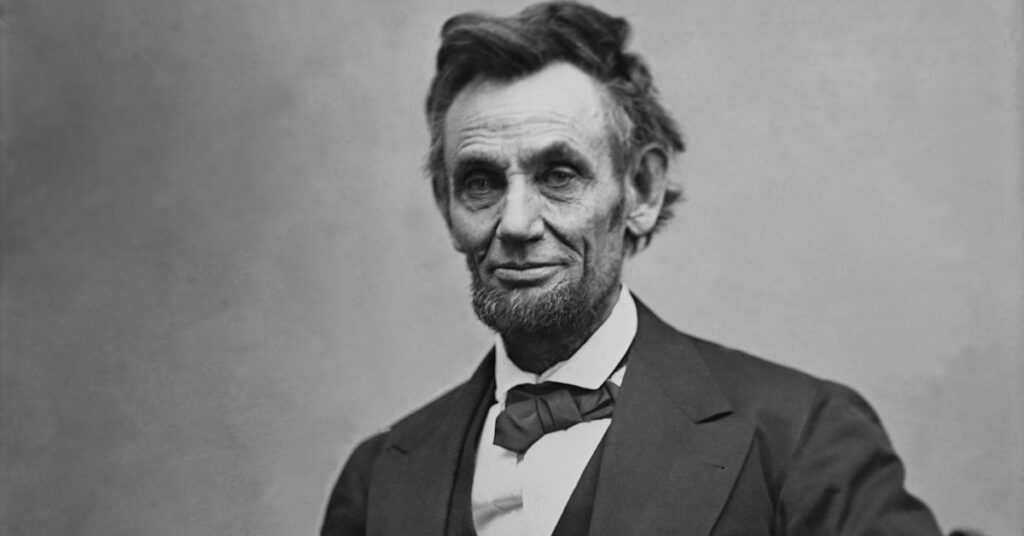
Abraham Lincoln was born on February 12, 1809, in a log cabin in Hardin County, Kentucky (now part of LaRue County).
Abraham Lincoln was the 16th President of the United States and one of the most iconic figures in American history. He is best known for his leadership during the American Civil War and his efforts to abolish slavery.
Lincoln had limited education, but he was a voracious reader and learned multiple fields. Before entering into politics, he held jobs as a rail-splitter, store clerk, surveyor,and lawyer.
Abraham Lincoln is widely regarded as one of the greatest U.S. presidents. His leadership during the Civil War, his commitment to ending slavery, and his advocacy for the principles of freedom and equality have made him an enduring symbol of American democracy.
The vision and leadership of Abraham Lincoln during a turbulent time in American history continue to motivate people all across the world.
14. Karl Marx

Karl Marx was a 19th-century philosopher, economist, and political theorist who, along with Friedrich Engels, developed the socio-political theory known as Marxism.
Karl Marx was born on May 5, 1818, in Trier, in what is now Germany. He came from a middle-class family with a long history of academics and law.
Marx studied law, history, and philosophy at the University of Bonn and the University of Berlin. He initially worked as a journalist and editor for various publications.
“Das Kapital,” Marx’s most important work, was released in a number of volumes over several years. He analyzed the capitalism system, its inbuilt contradictions, and the exploitation of labor in this piece.
Karl Marx’s ideas and theories continue to be studied, debated, and adapted by scholars and activists worldwide.
15. Socrates
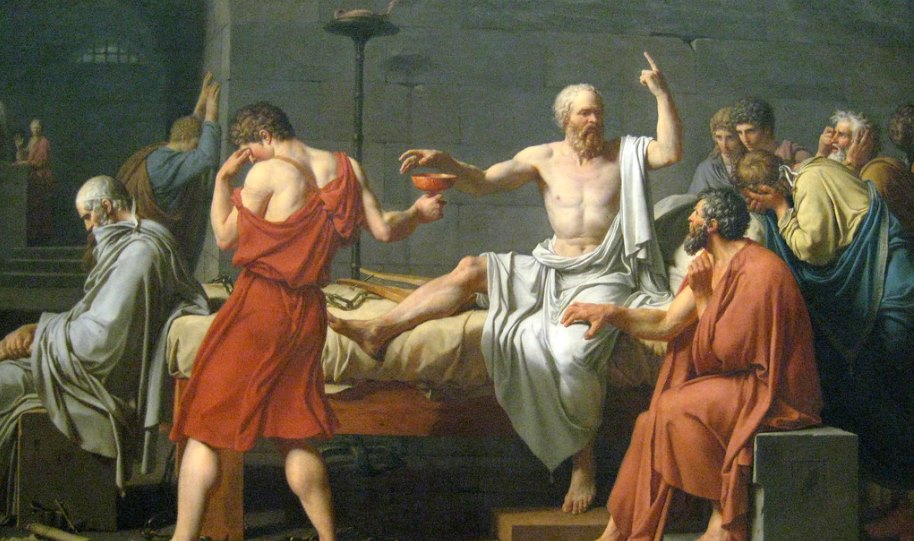
Socrates was born in Athens, Greece, around 470 or 469 BC. He belonged to a humble background and worked as a stonemason and soldier in his earlier years. He lived during a period of great intellectual and political development in Athens.
As one of the most significant individuals in the rise of Western philosophy, Socrates was an ancient Greek philosopher. He is known for his unique philosophy, which emphasized asking insightful questions and participating in logical debates to foster critical thinking and introspection.
Socrates left a significant legacy. His approach to questioning and the dialogue-based pursuit of truth provided the groundwork for Western philosophy. He had a huge impact on his pupils, particularly Plato, who went on to become one of the greatest thinkers of all time. Socrates is frequently the focal point of philosophical dialogues in Plato’s works.
16. Adam Smith
Adam Smith is known as the father of modern economics, and is one of the world’s most influential people. His work on The Wealth of Nations, which was published in 1776, built classical economics and is a huge part of the economics that we study in this twenty-first century. Adam’s theories on the division of labor, free markets, and the invisible hand mechanism changed economics and how people viewed it.
Apart from economics, Smith was also interested in philosophy, ethics, and politics.He believed in freedom for everyone and that to contribute to your economy, you should first understand and learn your interests. He helped form capitalist societies.
His work on economic policy, business practices, and academics is still followed and his interest for free trade and very less government intervention is still a big topic in globalization, deregulation, and market workings. He is not just one of the greatest economists of the world but also one of the most influential people in history, who fought for what he thought was right.
17. Johannes Gutenberg
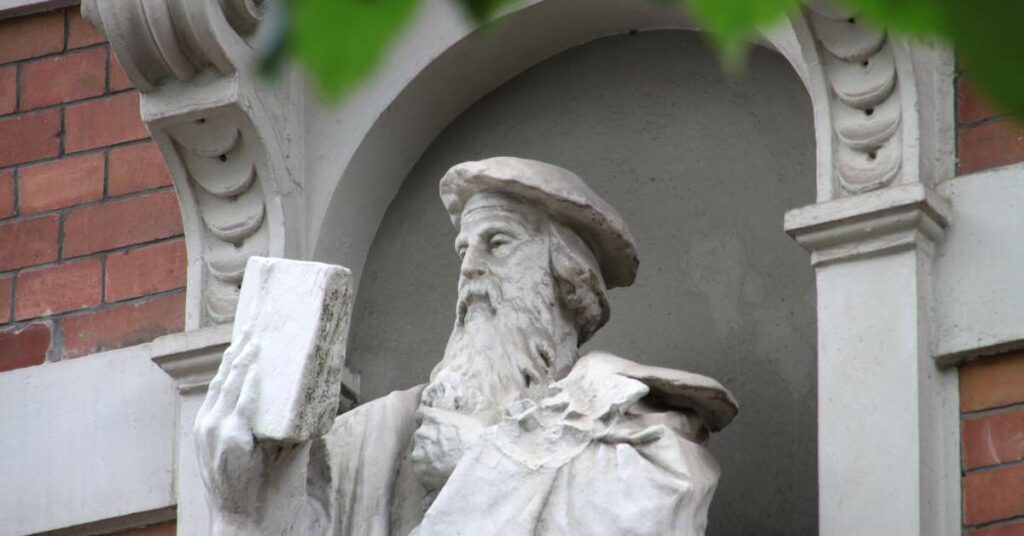
Johannes Gutenberg is a 15th-century German who is known for inventing the printing press, the machine that changed the way publishing worked. The printing press in around the year 1440 started the Printing Revolution and transformed the way printing worked and knowledge spread. By making books more affordable and available to the general audience, Gutenberg’s press broke free from the monopoly of the elite and expensive literature.
Gutenberg’s Bible is the most famous work of Johannes which showed how the press could print high-quality pages in bulk and for cheap rates. This played an important part in the Renaissance, the Reformation, and the Scientific Revolution, as information and ideas could now be exchanged in a short time. Through the printing press, you could also maintain the quality of your text and work, which made the printing press the obvious choice for publishing books.
The influence of Gutenberg’s press remains to this day, for it is the foundation of modern-day printing machines. The printing press is one of the most important inventions in the twenty-first century that did not just change how information was spread but also how people think and learn.
Johannes used to be a key believer in “Knowledge is power.”, which is what helped him build the printing press and change the way printing worked.
18. Alexander the Great
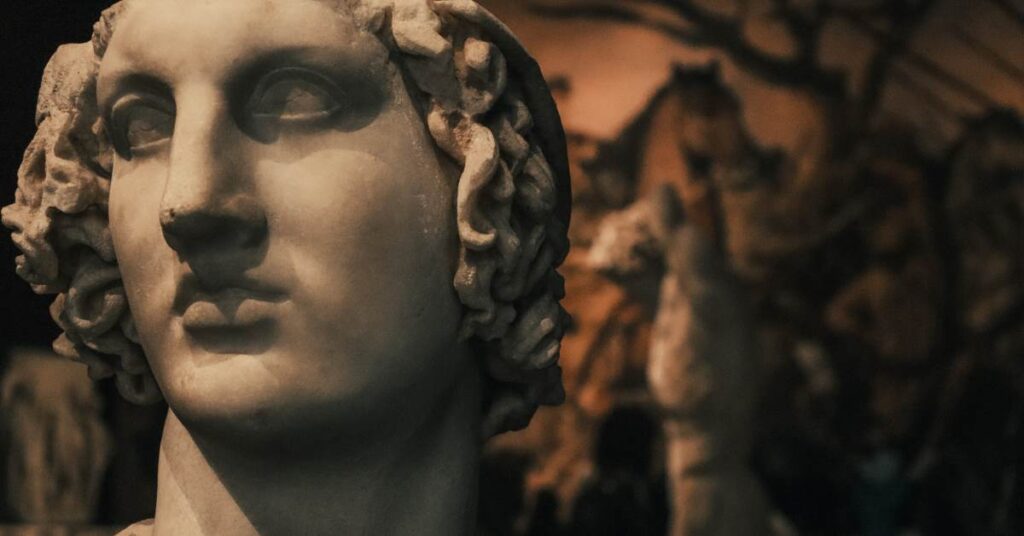
Alexander the Great was born in 356 BCE in Macedon and is one of the most famous kings and conquerors in the world. He died at the age of 32 when he had created one of the largest empires in the world, from Greece to Egypt into Northwest India. His conquests show that he was not only a genius and a stalwart, but did you know that he also introduced new cultures and brought out different cultural changes in the places that he ruled?
With Aristotle as his teacher, Alexander grew up to be both shrewd and a visionary. He wanted to mix his culture, Greek with that of the regions that he captured. It came to be known as Hellenization and this mix of cultures helped spread Greek, its language, art, architecture and philosophy, which was also a huge influence in the discovery of Mediterranean and Near Eastern civilizations.
Alexander’s legacy is more than just his name. He established a number of cities, some of them with his name, and spread the culture of Greece and commerce throughout all of Asia. The tactics that he used for his military force are still widespread throughout the world and used by many. He dreamed of a big and united empire for himself and that was what helped set up the Hellenistic period, which was the period of Greek influence.
One of his famous sayings, “There is nothing impossible to him who will try,” shows how ambitious and determined he was. Alexander the Great’s impact on history is mighty like his name, which makes him one of the most influential men in the world.
19. Louis Pasteur
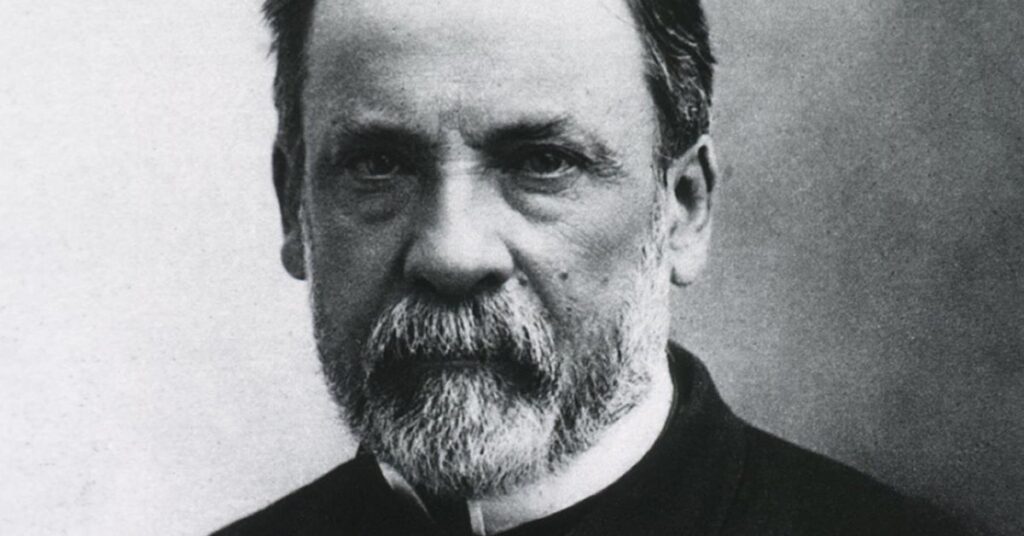
Louis Pasteur (1822-1895) was a pioneering French chemist and microbiologist whose work has had a profound impact on public health and medical science. He is best known for developing the germ theory of disease, which established that microorganisms are the cause of many diseases. This theory revolutionized medical practices, leading to significant advancements in hygiene and infection control. Pasteur’s meticulous experiments and his innovative thinking laid the groundwork for modern microbiology and transformed the understanding of how diseases spread.
Pasteur’s contributions to science extended beyond the germ theory. He invented the process of pasteurization, a technique to prevent the spoilage of food and beverages by heating them to a specific temperature to kill harmful bacteria. This method is still widely used today to ensure the safety of milk, wine, and other perishable products. Additionally, Pasteur developed vaccines for anthrax and rabies, marking significant milestones in the field of immunology and setting the stage for the development of more vaccines that have saved countless lives.
Throughout his career, Pasteur demonstrated remarkable dedication and perseverance. His work not only solved practical problems but also advanced scientific knowledge, influencing future research and public health policies. The Pasteur Institute, founded in 1887, continues to honor his legacy by conducting cutting-edge research in infectious diseases and immunology. Louis Pasteur’s contributions have left an indelible mark on science and society, exemplifying the profound impact that dedicated scientific inquiry can have on improving human health and well-being.
20. George Washington

It is known that George Washington, born in 1732, was one of the founding fathers and was called the father of the United States for this. During the American Revolutionary War, he was stationed as the commander-in-chief of the army, which helped America to defeat the British and gain independence. It was because of his being a leader and his influence that he helped defeat the Britishers and make America an independent country.
He also presided over an important convention which took place on September 17th, 1787. There he worked alongside others to draft a new Constitution for the United States of America. As a result, in 1789, George Washington was elected by citizens as their first president. His strong vision and leadership skills were what helped him develop America.
When his two terms were complete, Washington decided not to go further but handed over power to John Adams who became the second president of America. His ability to see beyond his personal interests made him realize how important it was for him as a leader to concentrate on developing his own economy and making the US one of the strongest countries in the world.
He used to say “Liberty, when it begins to take root, is a plant of rapid growth.” Even in this quote, we can see what George Washington means by the growth of a nation with freedom as the basis. The former president’s life has become with time an inspiration for millions around the world especially those living in the USA today because he played a significant role in shaping their lives, from being only an ordinary citizen to becoming a great leader.
21. Christopher Columbus
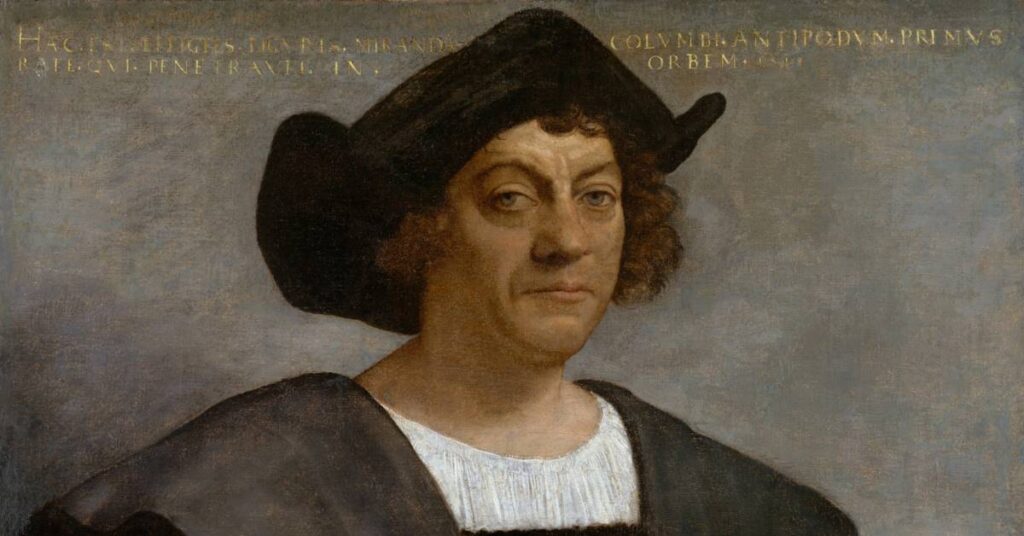
Christopher Columbus was born in 1451 in Genoa Italy, and his name is written in the list of one of the world’s greatest explorers. His voyage to the Atlantic, with the help of Spanish monarchs Ferdinand and Isabella in 1492 was what introduced American continents in Europe. Columbus’s voyages were proof of the various cultures and colonization that took place over time.
Columbus underwent four voyages to the New World, with which he explored parts of the Caribbean, Central America, and South America. Even though Vikings like Leif Erikson had already explored these places, stories of Christopher’s voyages were felt and enjoyed by a lot of people. After all, his voyages were what opened the door for the exploration of Europe.
His voyages to Columbia led to the exchange of goods, ideas, plants, animals, cultures and diseases between the Old and New Worlds, and shaped the economy of that time. While he is celebrated for his voyages across the world and for expanding Europe, he has also been involved in the colonization of many nations.
“By winning over all obstacles and distractions, one may unfailingly arrive at his chosen Destination.”, is what Christopher Columbus used to say about his journeys. Columbus’s name is still imprinted in the history books and he remains as the Admiral of the Ocean Sea.
22. Alan Turing
23. Ludwig van Beethoven

Ludwig van Beethoven was born in 1770 in Bonn, Germany, and is one of the most influential piano composers in the world. His work was a major in the Classical era and the Romantic era in music, which inspired many musicians.
Beethoven’s works on symphonies, sonatas, string quartets, and concertos, are known for their compositions, emotions and complexity. His works like Symphony, Ninth Symphony, and Moonlight Sonata, are till now one of the best classical repertoires in music. And his music carries with it, emotions and experiences that sit with listeners.
Ludwig became partially deaf in his late twenties and a while later lost his complete hearing, and despite that, he composed some of the world’s best classical music. Beethoven’s influence is more than just music, he influences people around the world with his music and takes them to another world.
Beethoven used to say, “Music is the medium between the spiritual and the sensual life,” and believes that music can break all boundaries and touch a man’s soul. Ludwig van Beethoven’s works are still played and loved in today’s time, and his work is music can never be replaced.
24. Henry Ford

Henry Ford was born in Dearborn, Michigan in 1863. He was a businessman and the founder of the Ford Motor Company. He changed the whole automobile and modern manufacturing industry with his use of assembly line production. He introduced the Model T in 1908, which made automobiles affordable for every American, and changed the transportation system in America.
Ford’s use of the assembly line techniques in 1913 helped him push out more products at a low cost. This not only increased the production of Model T but also lowered its cost of manufacturing and changed how manufacturing industries worked. Through his assembly line principal and his paying higher salaries to his workers, Henry not only made his employees happy but also scaled his business.
Henry has not just changed the manufacturing industry in America but also worked for society. With an automobile at every house, urban planning became easy, roads started developing, and more cars were seen on the roads.
His goal of making cars available for everyone has changed the way people think and motivated the people of America.
“Whether you think you can, or you think you can’t – you’re right,” was what Henry used to believe in and what made him such a big businessman and entrepreneur.
25. Winston Churchill
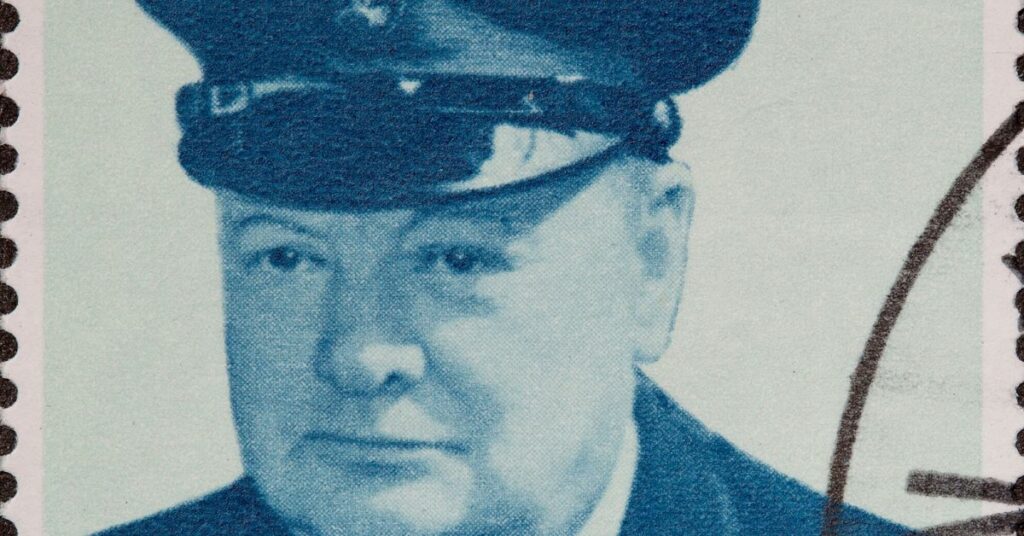
Winston Churchill was a British statesman, military leader, and writer who was born in 1874 and was the Prime Minister of the United Kingdom during World War II. Known for leading the country in one of its darkest days, it was Churchill’s speeches and leadership that helped the country fight against the Nazi Germany.
Churchill worked for over six years as the First Lord of the Admiralty, Chancellor of the Exchequer and Prime Minister in 1940. With the danger of Germany attacking the United Kingdom, Churchill’s speeches were what motivated the people of his country to fight.
“We shall fight on the beaches… we shall never surrender,” is the line that motivated millions of people.
He also played a big part in building Europe after the war and helped establish the United Nations. His Iron Curtain motivated his country’s people through the Cold War. And ultimately he was awarded the Nobel Prize in Literature in 1953 for his speeches and writings.
“Success is not final, failure is not fatal: It is the courage to continue that counts,” are the words that Winston believed in and what made him such a great leader and writer.
26. Franklin D. Roosevelt
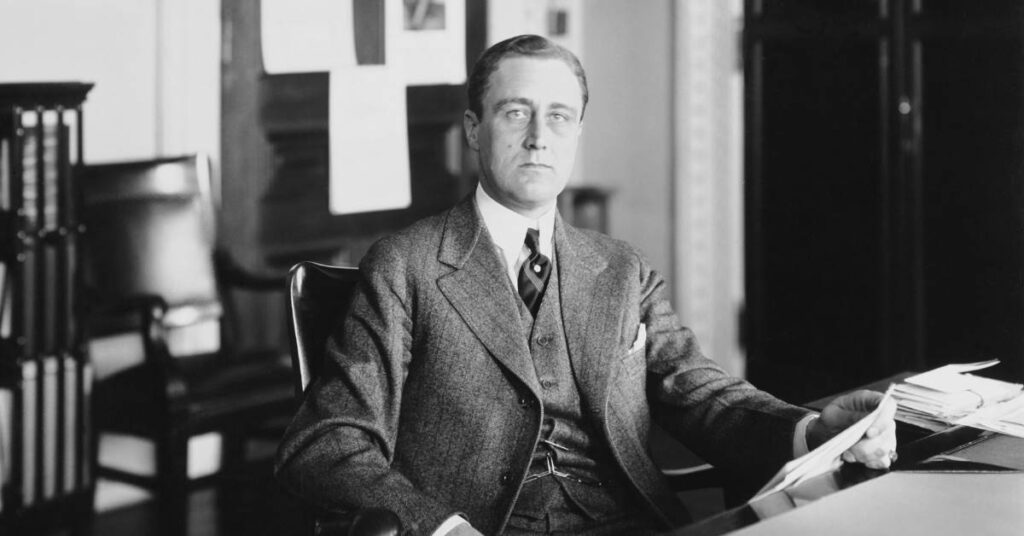
Franklin D. Roosevelt was born in 1882 in Hyde Park, New York, and was the 32nd President of the United States. He was a President for four years from 1933 to 1945, after which he died. Roosevelt, also known as FDR is known for leading America through the Great Depression and World War II.
He became a president when the Great Depression was on the rise, and the American economy was in ruins. To help with this, he launched New Deal, economic and social programs for providing relief and help to the people, and for stabilizing the American economy. These were Social Security, unemployment insurance, and more, which animes to stabilize and strengthen the American economy. The New Deal not only helped with the Great Depression but also played a big part in the modern American economy.
He also had a big hand in World War II. With the attack on Pearl Harbor in 1941, allied with Britain and the Soviet Union, and defeated the Axis powers. He motivated the whole of America with his fireside chats and his vision for an independent America.
He was also suffering from Polio, because of which he was paralyzed from down the waist. But which left him paralyzed from the waist down. But his influence and leadership did not leave him, and he led America to victory.
Franklin in his first speech had said “The only thing we have to fear is fear itself,” .and these are the words that motivated the Americans to victory and these words still hold true.
27. Aristotle
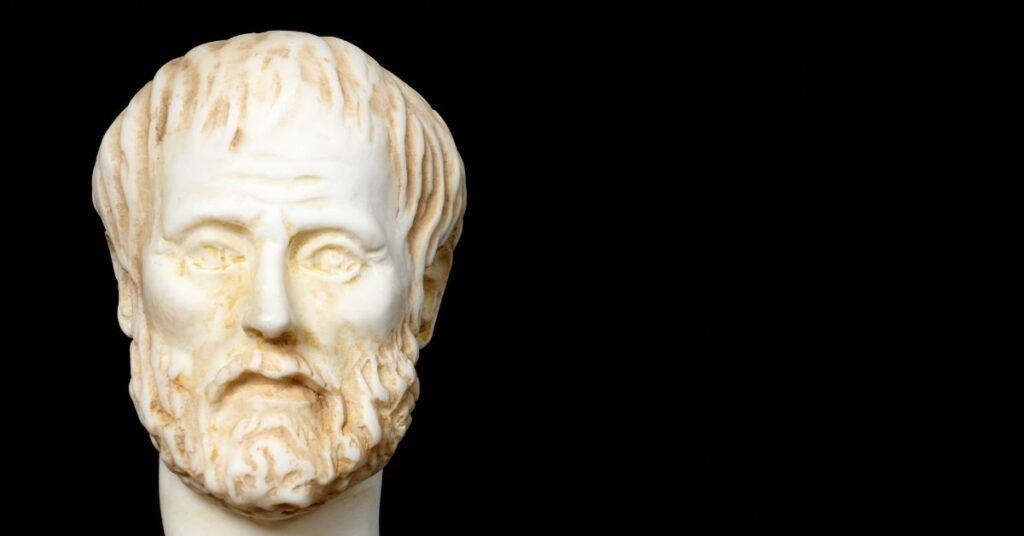
Aristotle was born in 384 BCE in Stagira, Greece. He was a Greek philosopher and polymath whose writings and musings have shaped up the Western philosophy. He was a student of Plato and taught Alexander the Great, who went on to be a mighty ruler.
Aristotle had his hand on many subjects like logic, metaphysics, politics, biology, and philosophy.
Aristotle’s works in philosophy were written and thought upon from his observations and inquisitiveness. He was the founder of the Lyceum in Athens, which was a research center for him and his students. His logical analysis, and syllogism, was helped build the Western logical theory.
Aristotle helped understand the concept of reality in Metaphysics, what is substance and causality—material, formal, efficient, and final causes. His writings, like the Nicomachean Ethics, brought in the study of virtue ethics, aaying that a good life is lived by being virtuous and finding a balance between very much and very less, the Golden Mean.
Aristotle also worked in Politics, with his theory studying the organisation of the state, mixed government and the middle class society. And his papers on biology like the History of Animals, observed and classified the living organisms.
His influence did not just inspire the people in medieval times, his concepts and theories are still studied by people in this twenty first century and forms the scholasticism and forms the base of modern philosophy.
“Knowing yourself is the beginning of all wisdom,” is one of Aristotle’s quotes, which carries with it the belief of knowing and understanding yourself. His work and words have made him one of the most influential thinkers in the history of the world.
28. John Locke
Cai Lun, was born in 50 CE in Guiyang and is known to invent paper, an essential part of modern day life. He was a court official in the Eastern Han Dynasty, and developed paper around 105 CE, which then replaced bark and papyrus for writing.
Cai Lun’s created paper with ingredients that were easily available like the mulberry bark, hemp, rags, and fishnets. These items were then mashed together, and spread over thin sheets to form a writing space which was light and long lasting. This method of writing saved more money and time and was easier to work with, which gave rise to the study of literature, and education.
Paper changed the way knowledge was passed and recorded. Earlier, it helped China in keeping records of important things, writing literature and reading. And through the Silk Route, paper soon became a concept that everyone knew and used.
Cai Lun’s influence and invention is still celebrated throughout the world. Historical records also bring his other works to people. Cai Lun is remembered not just as an inventor, but as the man who influenced millions of people to write and share their thinking.
29. Sigmund Freud
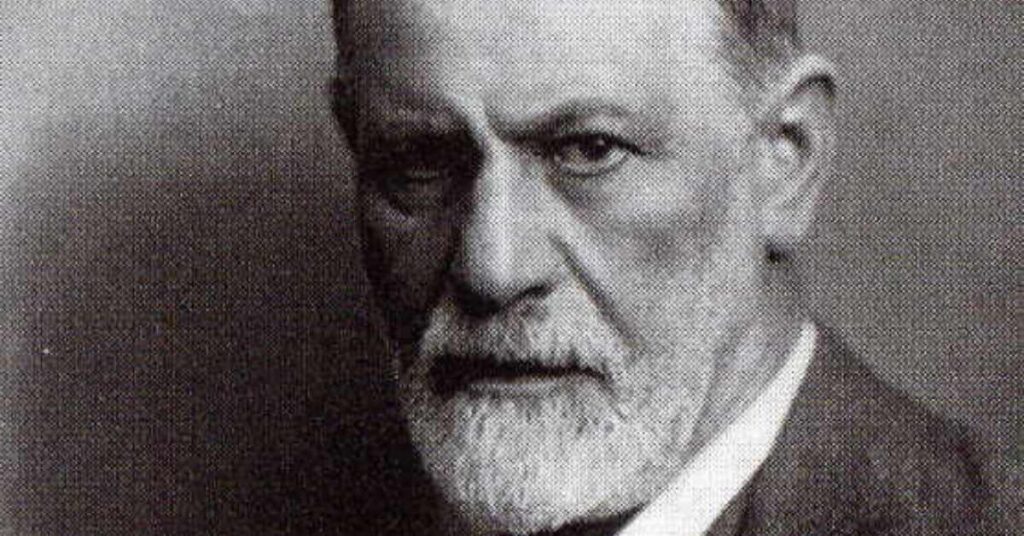
Sigmund Freud was born in 1856 in Freiberg, Moravia, which is the Czech Republic in modern day. He was an Austrian neurologist and was behind the concept of psychoanalysis. His work helped in understanding human psychology and was used for the treatment of mental disorders.
He was one of the most influential men in the history of psychiatry. His theories brought attention to the unconscious mind, and it’s Influence in human behaviors, desires, fears, and memories. He divided a human psyche into three parts: the id, with primary and basic; the ego, which was between the id and reality; and the superego, which stood for morality. And this model became the base of the psychoanalytic theory.
Sigmund helped develop the therapeutic theories in today’s world like the free association, dream analysis, and the understanding of childhood experiences, to find out how a human brain works and is shaped. His psychosexual theory stated that a person’s childhood is what shapes their personality and behaviour, with its oral, anal, and phallic phases.
He has worked on The Interpretation of Dreams, Totem and Taboo, and Civilization and Its Discontents, which study human psychology, and its behaviour. It was his ideas about defense mechanisms, repression, denial, and projection, that helped shape modern day psychology.
Sigmund’s Influence on psychology, literature, art, and culture is very huge and has shaped the current psychological practices and theories. “Unexpressed emotions will never die. They are buried alive and will come forth later in uglier ways,” were his words on repressed emotions in a human.
30. Kofi Annan
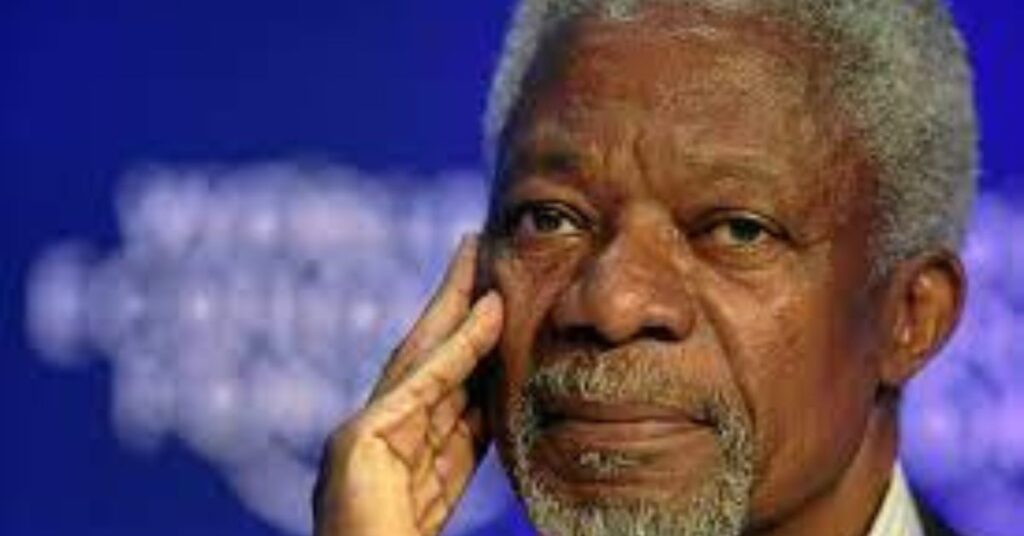
Kofi Annan was born in 1938 in Kumasi, Ghana, is a diplomat and the seventh Secretary-General of the United Nations. He worked as a security general for the UN from 1997 to 2006 and was the first person from sub-Saharan Africa to do so. He fought for peace and human rights.
As the Secretary-General, he made the UN focus on the social problems of the 21st century like development, human rights, and the rule of law. So the UN could better solve global crises.
Under him, the UN put out the Millennium Development Goals (MDGs), which are a set of goals that aim to reduce poverty and promote health, education and sustainable development. He also played a huge role in helping East Timor and giving resolutions in the Balkans and the Middle East.
His diplomacy and work also earned him the Nobel Peace Prize in 2001, which he shared with the UN.
Even after retiring from the UN, Annan works for world peace and development through his Kofi Annan Foundation, promoting governance, agriculture, and empowerment of the youth.
“To live is to choose. But to choose well, you must know who you are and what you stand for, where you want to go, and why you want to get there,” was what Kofi used to say and work on. He still represents peace, and development and continues to promote human rights.

















